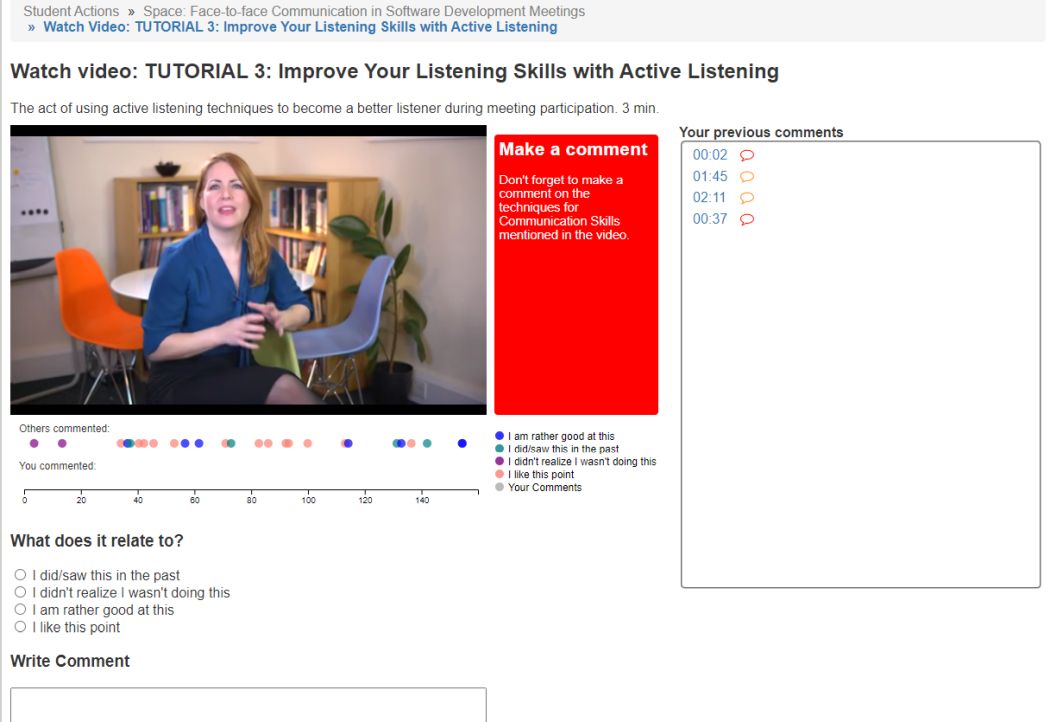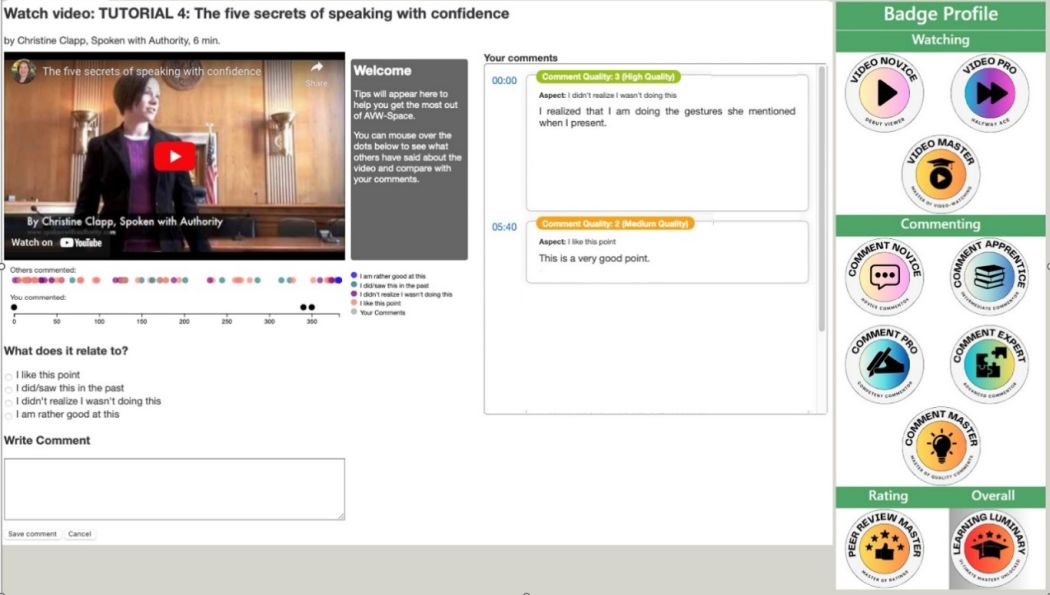The growth of NZ’s software industry is essential for NZ’s vision of a productive economy. With 12,000 firms, 35,000 employees, a $5.3Bn contribution to GDP and a strong export focus, the software sector is a high-value sector.
Underpinning this economic value are highly skilled professionals. To build high-quality software, 'transferable' skills, including team and intercultural skills, communication, negotiation and empathy are significant. However, many ICT graduates and professionals lack these skills, and teaching them is expensive and time-consuming.
This research aims to develop an online, interactive and personalised learning approach for transferable skills based on 'active' video watching. Novel scientific contributions are:
- AI-based model to provide personalized support and learning during video-watching
- An interaction model for engagement with video-based learning material that integrates interactive activities to ensure consistent, active engagement based on a learner’s profile
- A computer-based training platform geared towards transferable skills relevant to different types of ICT roles based on scientific rigor and practical relevance.
We will identify psychological and cognitive factors that facilitate video-based learning of transferable skills and define skills suitable for video-based learning. The research will enhance conventional passive video watching with novel mechanisms to increase learning experience, and push beyond a conventional classroom setting into professional development in industry.
The research will help small and medium-sized ICT companies in NZ train employees in an effective and time-efficient manner, resulting in quantified gains in productivity and economic performance. In particular, it will extend reach and accessibility to more effective training and lower barriers to adoption.
Our research will reinforce NZ’s position as an international leader in AI in education, and software engineering research, science and technology.









